Search Results
Showing results 41 to 60 of 85
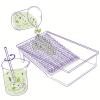
Wetland Filter Model
Source Institutions
In this quick activity (located on page 2 of the PDF under GPS Wetlands Activity), learners will model how wetlands act as natural filters for the environment.
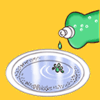
Pepper Scatter
Source Institutions
In this quick activity, learners break the tension that happens when water develops a "skin." Learners use water, pepper and some soap to discover the wonders of surface tension—the force that attract
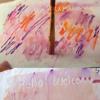
Tie Dye Secret Messages
Source Institutions
In this activity, learners will write a secret message that only their friends will be able to read.
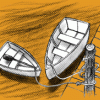
Watercraft
Source Institutions
In this design challenge activity, learners build a boat that can hold 25 pennies (or 15 one inch metal washers) for at least ten seconds before sinking.

Shower Estimation
Source Institutions
In this activity, learners calculate their water usage (in cups and galloons) during an average shower. Learners also chart and analyze water usage during showers in their households.
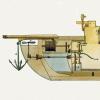
Design a Submarine
Source Institutions
Learners act as engineers and design mini submarines that move in the water like real submarines.
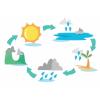
Water Cycle in a Bag
Source Institutions
In this activity, learners will explore the water cycle by creating a small atmosphere.

Meltdown
Source Institutions
In this activity, learners heat ice and water of the same temperature to get a hands-on look at phase changes. This is an easy and inexpensive way to introduce states of matter and thermodynamics.

We all Scream for Ice Cream
Source Institutions
In this activity, learners observe how salinity affects the freezing point of water by making and enjoying ice cream.
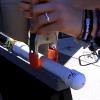
A Spray Spree
Source Institutions
In this activity, learners explore water pressure by conducting an experiment with a garden hose. Learners build a testing apparatus and create PVC nozzles with different sized holes.

Can Crushers
Source Institutions
In this activity, learners conduct an experiment by heating an aluminum can filled with water to investigate air pressure.
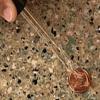
Penny Drop
Source Institutions
In this quick activity about the properties of water (page 1 of PDF under SciGirls Activity: Malformed Frogs), learners will use an eyedropper to slowly place one drop of water at a time onto a penny,

Mystery Sand
Source Institutions
In this activity, learners play with surprising sand that doesn’t get wet! Learners explore how water behaves differently when it comes in contact with "magic sand" and regular sand.
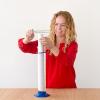
Organ Pipe: Get Bach to the fundamentals
Source Institutions
If you got a big graduated or clear cylinder, water, a pipe, and a tuning fork, you've got a sound learning opportunity! Learn about resonance with this Exploratorium Science Snack.

Leaf it to Me
Source Institutions
In this activity, learners observe the effect of transpiration as water is moved from the ground to the atmosphere.
When is a Glass of Water Really Full?
Source Institutions
In this activity, learners see how many coins they can add to a full glass of water before the water overflows.
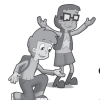
Cool It!
Source Institutions
In this fun hands-on activity, learners use simple materials to investigate evaporation. How can the evaporation of water on a hot day be used to cool an object? Find out the experimental way!
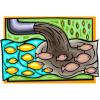
Storm Water Runoff Pollution
Source Institutions
This activity (located on page 8 of the PDF) introduces learners to the concept of Non-point Source Pollution--what happens when rain washes garbage and other pollutants into rivers and lakes.
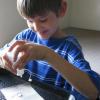
Exploring Products: Nano Fabrics
Source Institutions
In this activity, learners explore how the application of nano-sized "whiskers" can protect clothing from stains.
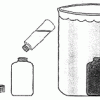
Make Your Own Deep-Sea Vent
Source Institutions
In this activity, learners make a model of the hot water of a deep sea vent in the cold water of the ocean to learn about one of the ocean's most amazing and bizarre underwater habitats.
